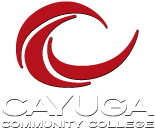ELECTRICAL TECHNOLOGY — ELECTRONICS A.A.S.
This program prepares students for employment and advancement in the field of electronics.
PROGRAM LEARNING OUTCOMES
- Understand electrical terminology and component recognition.
- Interpret manufacturers’ technical data sheets on components.
- Interpret electrical schematics.
- Build, test, and troubleshoot Analog and Digital electrical circuits on breadboards.
- Demonstrate the safe and proper use of laboratory equipment, including Multimeters, Oscilloscopes, Power Sources, Function Generators, and Spectrum Analyzers.
- Analyze Industrial circuitry (including Programmable Logic Controllers).
- Analyze electrical circuits through calculations involving theoretical concepts.
- Capture, analyze, and troubleshoot circuitry using an electronics simulation program.
- Create professional technical written documents.
- Effectively communicate technical information to appropriate audiences.
- Understand the appropriate professional conduct required in the workplace.
CAREER POSSIBILITIES
Positions in the fields of computers, robotics, medical instrumentation, audio/radio frequency communication, and manufacturing include:
- Electronics Technician
- Service Technician
- Systems Test Technician
- Research and Development Technician
- Quality Control Technician
- Software Technician
- Biomedical Technician
- Documentation Technician
TRANSFER INFORMATION
Students should contact their advisor and/or the Coordinator for Transfer and Articulation in the Centers for Student Engagement and Academic Advisement for information on transfer planning. Early consultation to plan the most appropriate course sequence will optimize transferability.
DEGREE REQUIREMENTS
A background in algebra and trigonometry is recommended.
Cayuga’s “hands-on” learning environment focuses on experimentation with various test equipment and helps students develop troubleshooting skills for sophisticated electronic systems.
The curriculum provides the graduate with fundamental knowledge in DC and AC circuitry, digital circuits, microprocessor systems, programmable logic controllers, and high-frequency systems. Cayuga’s experimental and simulation laboratory environments help students gain necessary application experience in properly using multimeters, oscilloscopes, logic pulsers and probes, logic analyzers, spectrum analyzers, and network analyzers.
| COURSES | CREDIT HOURS | |
|---|---|---|
| FIRST SEMESTER | ||
| ENGL 101 | Freshman English I | 3 |
| ELEC 101 | Electrical Circuits | 4 |
| ELEC 105 | Digital Electronics | 4 |
| Math Elective * | 3 | |
| Health or Physical Education | 1 | |
| 15 | ||
| SECOND SEMESTER | ||
| ENGL 102 OR ENGL 270 |
Freshman English II OR Technical Writing |
3 |
| ELEC 102 | Basic Electronics | 4 |
| ELEC 107 | Fundamentals of Microcomputers | 4 |
| MATH 114 OR MATH 104 |
Applied Mathematics for Technologists OR College Algebra and Trigonometry (or higher) |
3 |
| CS 200 OR CS 222 OR CS 238 |
Programming in Visual Basic OR Programming in C/C++ OR Java |
3 |
| 17 | ||
| THIRD SEMESTER | ||
| ELEC 201 | Intermediate Electronics | 4 |
| ELEC 208 | Radio Frequency Communications | 4 |
| PHYS 103 | General Physics I | 4 |
| Technical Elective ** | 3 | |
| General Education DEISJ Liberal Arts (cannot be BUS 205, HS 101) | 3 | |
| 18 | ||
| FOURTH SEMESTER | ||
| ELEC 204 | Industrial Electronics | 4 |
| ELEC 209 | Programmable Logic Controllers | 3 |
| ENGR 207 | Quality Assurance | 3 |
| PHYS 104 | General Physics II | 4 |
| 14 | ||
| TOTAL CREDIT HOURS | 64 | |
* MATH 112, 115, 116, or 121 will not fulfill the Math requirement. Must be a Math prefix in the General Education Mathematics and Quantitative Reasoning.
** The following will fulfill this requirement: BUS 225 or BUS 226, CS 200 or higher, Electronics, Engineering, Geographic Information Systems, Math (except Math 112, 115, 116 or 121), Mechanical Manufacturing Technology, Physics
A prior felony conviction may hinder a student’s ability to enroll in a course or complete the requirements of certain academic programs and/or meet the criteria for licensure required by certain professions.
